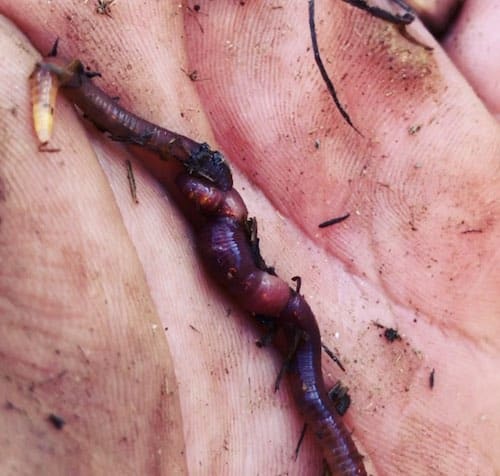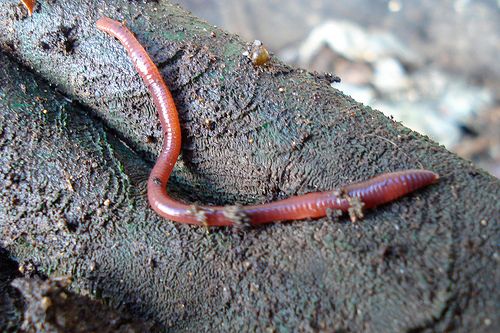The Incredible World of Red Wigglers: Boost Your Dirt Fertility Today
These little yet efficient microorganisms change organic waste right into important worm castings, considerably boosting dirt wellness and promoting lasting techniques. As we check out the benefits of vermicomposting and the sensible actions to produce a reliable worm bin, the possible influence of these worms on your gardening success ends up being increasingly noticeable.
Understanding Red Wigglers
Red wigglers, medically called Eisenia fetida, are a types of earthworm that play an important duty in boosting dirt fertility. These worms thrive in organic-rich atmospheres, such as compost heap and rotting plant material, where they eat natural waste and eliminate nutrient-dense castings. Their distinct makeup, featuring a segmented body and a clitellum, allows them to recreate swiftly and efficiently procedure big quantities of raw material.

The environmental relevance of red wigglers expands past simple waste processing; they add to the dirt food internet, promoting a varied community of bacteria that additionally boost soil health. Recognizing the biology and habits of red wigglers is important for utilizing their complete potential in lasting agriculture and horticulture techniques.
Advantages of Vermicomposting
(Lake Rhodhiss Bait)Using the power of red wigglers through vermicomposting offers numerous benefits that significantly improve soil health and fertility. One of the primary advantages is the production of nutrient-rich worm castings, which are a superb natural fertilizer. Red Wiggler Express. These castings have necessary nutrients like nitrogen, phosphorus, and potassium, promoting robust plant growth and enhancing crop returns
The visibility of worm castings enhances dirt appearance, enabling for far better water retention and drain. Red wigglers help break down organic matter, speeding up decomposition and reusing nutrients back right into the dirt.
Vermicomposting also promotes microbial activity, which is vital for a healthy soil ecological community. Beneficial microbes prosper in the presence of worm castings, aiding in the break down of organic materials and improving vitamins and mineral availability to plants.
Finally, vermicomposting works as a reliable waste monitoring option, minimizing garbage dump waste by recycling cooking area scraps and other organic materials. This not only adds to environmental sustainability yet additionally advertises a round economy within horticulture and agriculture.
Exactly How to Establish a Worm Bin
Setting up a worm container is an uncomplicated process that can significantly improve your composting efforts. Begin by choosing an appropriate container, which can vary from a readily readily available worm bin to an easy plastic or wood box (Red Wiggler Express). Ensure the container has ample ventilation; small openings in the lid and sides will certainly facilitate air circulation
Next, develop a bedding layer to offer a comfortable setting for the red wigglers. This can be made from shredded newspaper, cardboard, or coconut coir, dampened to a moist, sponge-like consistency. Fill the container to about one-third complete with this bedding product.
When the bedding is prepared, it's time to present the worms. Red wigglers grow in natural waste, so area them carefully onto the bed linen. Cover the worms with a light layer of extra bedding to help them accommodate.
Feeding Your Red Wigglers
Supplying the best food for your red wigglers is vital for their health and the efficiency of your composting system. Red wigglers flourish on a diverse diet, largely containing natural materials such as fruit and vegetable scraps, coffee grounds, and shredded paper. These materials not just provide important nutrients but likewise contribute to the microbial task in the worm bin, which is essential for the worms' food digestion.
It is very important to avoid certain foods, such as milk items, oils, and meats, as these can draw in pests and create unpleasant smells. Furthermore, citrus peels and overly spicy foods should be restricted because of their potential to harm the worms. A well balanced method to feeding involves checking the quantity of food introduced to the container, making sure that it is eaten within a practical timespan to protect against excess waste build-up.
To promote ideal digestion, it is beneficial to cut or shred bigger food items before adding them to the container. This technique raises the area for microbial action, assisting in quicker disintegration and boosting the general performance of your composting system. On a regular basis observing the worms' feeding practices will certainly help you change their diet regimen as necessary.
Utilizing Worm Castings in Your Garden

(Red Wiggler Express)Integrating worm spreadings into your yard can be completed by blending them right into the soil or using them as a leading dressing. The slow-release nature of these spreadings makes certain that nutrients are offered to plants over an extensive duration, minimizing the demand for synthetic plant foods. In addition, worm castings include advantageous microorganisms that promote healthy and balanced dirt environments, improving the overall resilience of your yard.
To optimize the benefits, goal to use approximately one component worm castings to three parts soil in your growing beds. Normal applications can bring about enhanced crop returns and much healthier plants, making worm castings a very useful resource for both novice and knowledgeable garden enthusiasts alike. By utilizing this all-natural amendment, you can grow a growing yard while contributing to sustainable horticulture methods.
Conclusion
Finally, red wigglers exemplify the vital role of vermicomposting in enhancing dirt fertility. Their ability to convert organic waste into nutrient-rich castings significantly enriches dirt framework and sustains microbial variety. Establishing a vermicomposting system not only advertises lasting gardening methods but likewise contributes to eco-friendly wellness. By leveraging the benefits of these impressive microorganisms, garden enthusiasts can cultivate extra efficient and resilient environments, ultimately promoting a much more sustainable method to farming and cultivation.